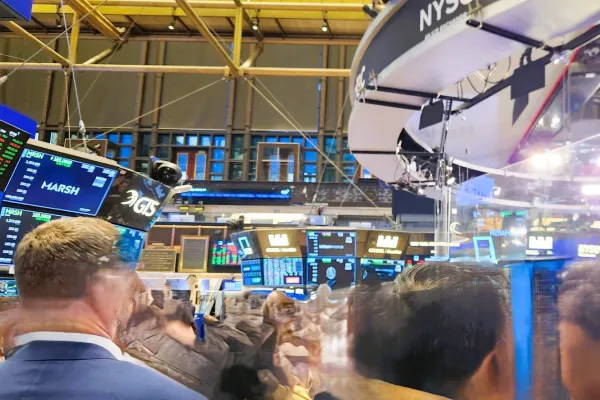IT DIDN'T TAKE LONG AFTER THIS SUMMER'S subprime mortgage market meltdown for investors to begin worrying that auto lenders might be next. Fort Worth, Texasbased AmeriCredit, a big creditor to subprime auto borrowers, became painfully familiar with those fears between June 14 and early September, when its share price fell from a peak of $29.46 to less than $16.
Equity investors were nervous that AmeriCredit would be unable to use its portfolio of subprime loans as collateral to sell asset-backed securities, a critical form of financing for the company. Consequently, AmeriCredit found itself needing to execute an asset-backed deal simply to prove it had access to capital.
"The ABS market was really shut down for a lot of August, and there were real concerns about AmeriCredit's ability to do a deal," says Christopher Brendler, an analyst with Stifel, Nicolaus & Co.
Securities backed by auto loans, credit card debt and other financial assets became caught up in the mess involving mortgage-related securities, which were plummeting in value as home prices fell and subprime mortgage defaults spiked. The mortgage woes caused investors to avoid risk and complexity, hurting the whole ABS market.
In the face of these conditions, AmeriCredit in early September tapped six banks, including eventual lead underwriters Credit Suisse, Lehman Brothers and UBS, to gauge investor appetite for a deal. The firms found sufficient demand for a $500 million offering of bonds backed by subprime auto loans, with maturities ranging from a few months to three years. But the deal's weighted average spread over various interest-rate benchmarks would be about 80 basis points wider than what the company has paid historically, during calmer times, even though its all-in financing cost would remain at about 5.5 percent because of central-bank rate cuts.
"Issuers were being extremely conservative in terms of the size of the offerings they were bringing to market," says John Slonieski, an investment banker who works on ABS auto deals for Credit Suisse.
AmeriCredit's underwriters continued to market the deal, recruiting additional buyers and convincing others to increase their allocations. On September 11, the company completed the offering, and was able to raise $1 billion.
"A few investors who had been on the fence came off and stepped up in size, and there were even some new names who took a look," says Christopher Choate, AmeriCredit's CFO.
In retrospect, the investor concerns about trouble in auto ABS appear to have been overblown. One reason: Unlike mortgage lenders, auto lenders generally have not loosened their credit standards in recent years. "Auto underwriting guidelines have remained fairly consistent," says Darcy Morrison, an analyst at Evergreen Investments. That's because cars depreciate as soon as they are driven out of the lot, so creditors are not led to expect a rise in the value of the asset against which they are lending. Mortgage lenders, by contrast, relaxed their standards as housing prices soared, thinking that borrowers who couldn't make their payments would be able to sell their homes for a profit and repay the loans.
Further protection comes from the fact that most subprime auto ABS deals, including this one, are guaranteed by a bond insurer, such as MBIA Corp. or Ambac Financial Group. This begs the question of whether AmeriCredit would have been smarter to wait for the panic to subside so spreads would narrow and borrowing costs would drop.
But the company was more focused on getting a deal done to prove it still had access to the ABS market, and the strategy worked. On September 12, the day after AmeriCredit priced its deal, its shares gained nearly 10 percent to close at $18.79 apiece.
Proving it can still access debt markets, however, hasn't been enough to fully assuage the concerns of equity investors. AmeriCredit's share price by the end of October had fallen to about $14, off 52 percent from its June high. The stock market appears nervous about the impact on the lender of a potential economic slowdown. That was the reason Brendler, the Stifel Nicolas analyst, downgraded AmeriCredit shares from buy to hold on October 8, a move that helped to send the share price down 5 percent that day. "Unfortunately, I think the economic pressures today are too big of a headwind," he says.





